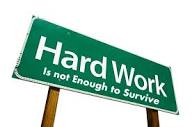
For centuries, experts have predicted that machines would make workers obsolete. That moment may finally be arriving. Could that be a good thing?
Derek Thompson, a senior editor at The Atlantic, tackles this question — whether a world without work could be a good thing — in his recent article A World Without Work in the July/August issue. In a quite lengthy article, Thompson brings to light a number of crucial issues related to our relationship with work, and how what we have been accustomed to referring to as “the work world” is rapidly changing.
What may be looming is an era of technological unemployment in which computer scientists and software engineers essentially invent us out of work, and the total number of jobs declines steadily and permanently. One of the first things we might expect to see in a period of technological displacement is the diminishment of human labor as a driver of economic growth. In fact, signs that this is happening have been present for quite some time.
The share of U.S. economic output that’s paid out in wages fell steadily in the 1980s, reversed some of its losses in the ’90s, and then continued falling after 2000, accelerating during the Great Recession. It now stands at its lowest level since the government started keeping track in the mid‑20th century.
When considering the relationship between people and work, some interesting facts are mentioned:
- The paradox of work is that many people hate their jobs, but they are considerably more miserable doing nothing.
- The share of prime-age Americans (25 to 54 years old) who are working has been trending down since 2000.
- The ills of unemployment go well beyond the loss of income; people who lose their job are more likely to suffer from mental and physical ailments.
- The most common jobs are salesperson, cashier, food and beverage server, and office clerk. Each is highly susceptible to automation.
- Oxford University researchers (in 2013) forecast that machines might be able to perform half of all U.S. jobs in the next two decades.
Most people do need to achieve things through, yes, work to feel a lasting sense of purpose. To envision a future that offers more than minute-to-minute satisfaction, we have to imagine how millions of people might find meaningful work without formal wages.
If the balance of work continues to shift toward the small-bore and episodic, the simplest way to help everybody stay busy might be government sponsorship of a national online marketplace of work (or, alternatively, a series of local ones, sponsored by local governments).

Derek Thompson
Derek Thompson is a senior editor at The Atlantic, where he writes about economics, labor markets, and the entertainment business. He oversees The Atlantic business section online and writes the business column for the magazine.

Discussion
No comments yet.